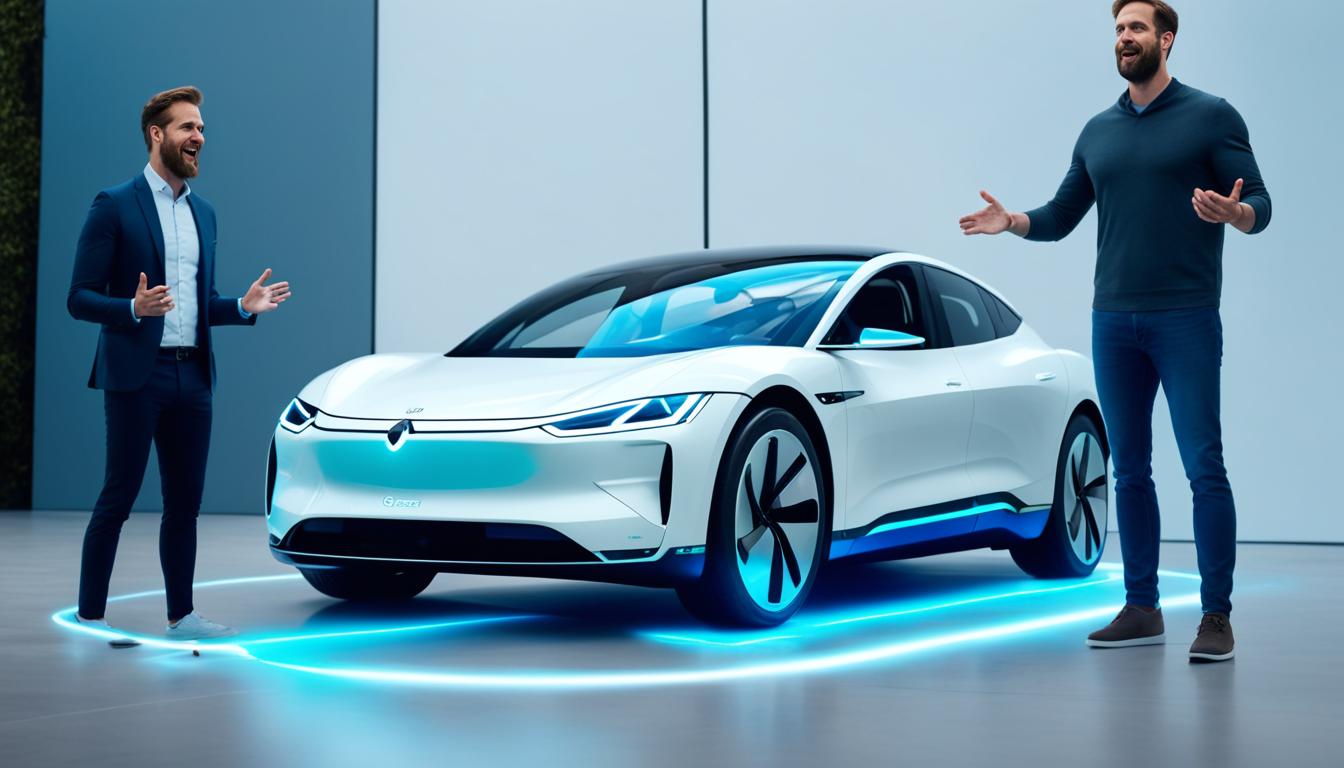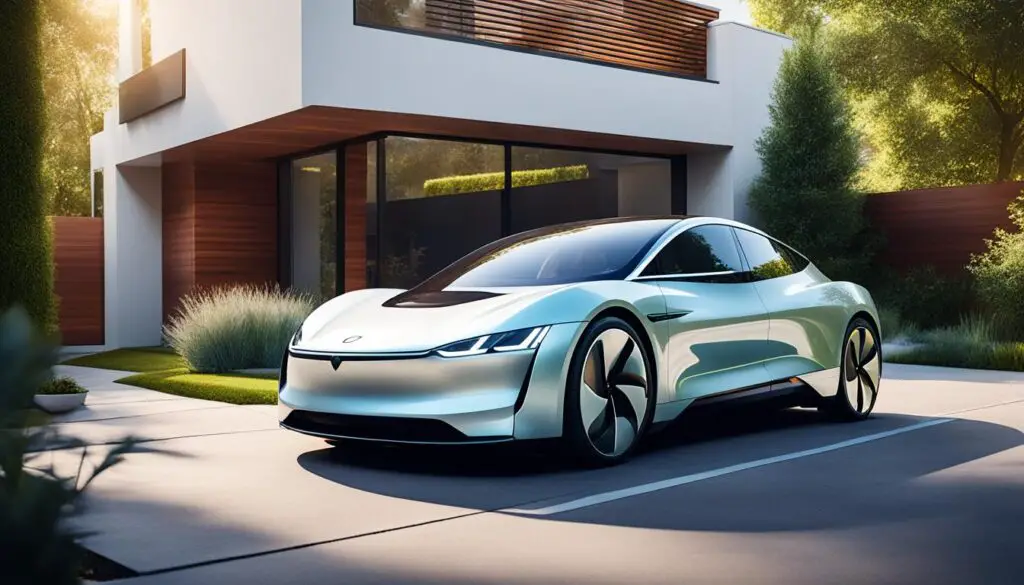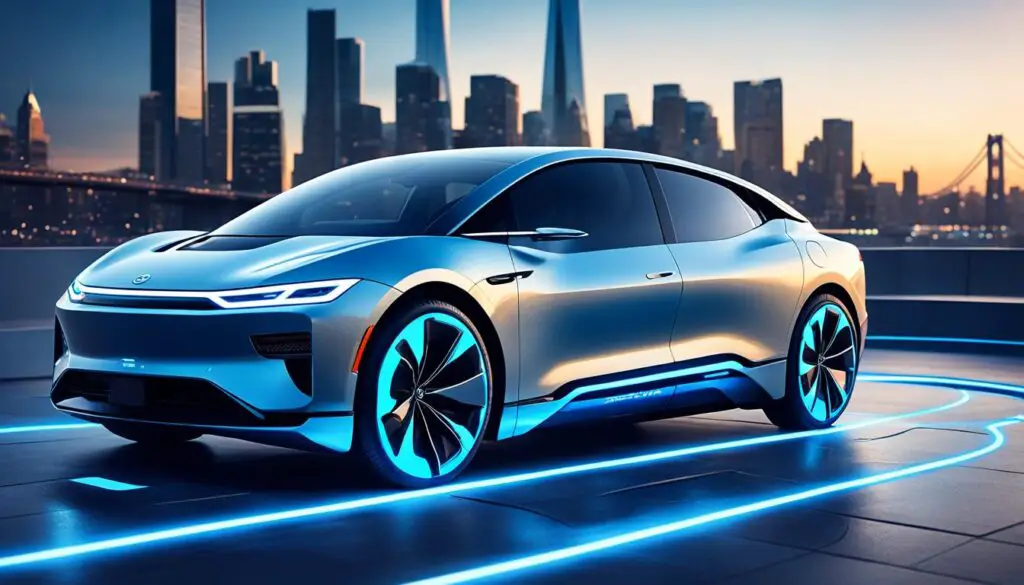
Cutting the Cords: The Magic of Wireless Vehicle Charging
Wireless vehicle charging is revolutionizing the way we power our rides. With the ability to charge electric vehicles without the need for cords or plugs, this groundbreaking technology offers convenience, eco-friendliness, and a cord-free experience. The introduction of wireless charging in the automotive industry has the potential to revolutionize transportation and pave the way for a greener future.
Key Takeaways:
- Wireless vehicle charging eliminates the need for cords or plugs, providing a hassle-free charging experience.
- It offers numerous advantages, including efficiency, convenience, and improved safety.
- Wireless charging works through inductive charging, utilizing a charging pad and magnetic fields.
- The future of wireless vehicle charging looks promising, with increased infrastructure and widespread adoption expected.
- This technology will drive the shift towards a more sustainable transportation system.
The Advantages of Wireless Vehicle Charging
Wireless vehicle charging offers numerous advantages over traditional charging methods. Firstly, it provides a more efficient and convenient charging experience, as there is no need to plug in a cord or handle any physical connections. Vehicles equipped with wireless charging technology can simply be parked over a charging pad, and the charging process will begin automatically. This eliminates the hassle of finding and connecting charging cables.
Additionally, wireless charging is considered safer than traditional methods, as there is no risk of electrical shock or damage to cords. It also reduces clutter and improves the aesthetic appeal of charging stations, as there are no visible cords or cables.
Advantages of Wireless Vehicle Charging:
- No need for cords or physical connections
- Efficient and convenient charging process
- Eliminates the hassle of finding and connecting charging cables
- Enhanced safety with no risk of electrical shock or cord damage
- Reduces clutter and improves aesthetic appeal of charging stations
In addition to these advantages, wireless charging technology is designed to be more energy-efficient. It minimizes power loss during the charging process, resulting in a more sustainable and cost-effective solution for electric vehicle owners.
“Wireless vehicle charging is a game-changer in the automotive industry, offering a seamless and hassle-free way to power electric vehicles. The convenience, safety, and efficiency provided by this technology make it a compelling choice for both consumers and businesses.”

| Advantages | Traditional Charging Methods | Wireless Vehicle Charging |
|---|---|---|
| Efficiency | Dependent on proper plug connection | No need for physical connections |
| Convenience | Requires handling of charging cables | No cords to connect or handle |
| Safety | Risk of electrical shock or cord damage | No risk of electrical shock or cord damage |
| Aesthetic Appeal | Visible cords and cables | No visible cords or cables |
How Wireless Vehicle Charging Works
Wireless vehicle charging operates on the principle of inductive charging. The process involves the use of a charging pad, which generates a magnetic field. When an electric vehicle equipped with wireless charging capabilities is parked over the pad, the magnetic field induces an electrical current in the vehicle’s charging coil. This current is then converted into usable electricity to charge the vehicle’s battery. The wireless charging system is designed to efficiently transfer power at a distance, allowing for seamless and convenient charging without any physical contact between the vehicle and the charging infrastructure.

| Advantages of Wireless Vehicle Charging | Disadvantages of Traditional Charging Methods |
|---|---|
| Convenient and cord-free charging | Need for cable connections |
| Efficient and seamless charging process | Risk of electrical shock |
| Safe and reliable charging | Potential cord damage |
| Improved aesthetic appeal of charging stations | Visible cords and clutter |
Wireless vehicle charging offers several advantages over traditional charging methods. With its convenient and cord-free charging process, there is no need to deal with cable connections and the risk of electrical shock. Moreover, wireless charging ensures a safe and reliable charging experience, eliminating the potential damage to cords. Additionally, it improves the aesthetic appeal of charging stations without visible cords and clutter.
The Future of Wireless Vehicle Charging
The future of wireless vehicle charging looks promising. As more automakers embrace this technology and develop vehicles with built-in wireless charging capabilities, the infrastructure for wireless charging is expected to expand. This will result in an increased availability of charging stations equipped with wireless charging pads, making it more convenient for electric vehicle owners to charge their cars.
Moreover, advancements in wireless charging technology and the improvement of charging efficiency will likely drive widespread adoption of wireless charging systems. As the technology continues to evolve, we can expect to see faster charging speeds and longer ranges, making wireless charging even more appealing to electric vehicle owners.
With the continued development and innovation in wireless vehicle charging, we can anticipate a significant shift towards a cord-free and more sustainable transportation system in the near future. As the infrastructure for wireless charging becomes more widespread, the barriers to entry for electric vehicle adoption will continue to diminish, ultimately leading to a cleaner and greener future for our roads.
FAQ
How does wireless vehicle charging work?
Wireless vehicle charging operates on the principle of inductive charging. When an electric vehicle equipped with wireless charging capabilities is parked over a charging pad, the magnetic field induces an electrical current in the vehicle’s charging coil. This current is then converted into usable electricity to charge the vehicle’s battery.
What are the advantages of wireless vehicle charging?
Wireless vehicle charging offers a more efficient and convenient charging experience. There is no need to plug in a cord or handle any physical connections. Vehicles equipped with wireless charging technology can simply be parked over a charging pad, and the charging process will begin automatically. It is also considered safer, as there is no risk of electrical shock or damage to cords. Additionally, wireless charging reduces clutter and improves the aesthetic appeal of charging stations, as there are no visible cords or cables.
What is the future of wireless vehicle charging?
The future of wireless vehicle charging looks promising. As more automakers embrace this technology and develop vehicles with built-in wireless charging capabilities, the infrastructure for wireless charging is expected to expand. This will result in an increased availability of charging stations equipped with wireless charging pads, making it more convenient for electric vehicle owners to charge their cars. Advancements in wireless charging technology and the improvement of charging efficiency will likely drive widespread adoption of wireless charging systems.
